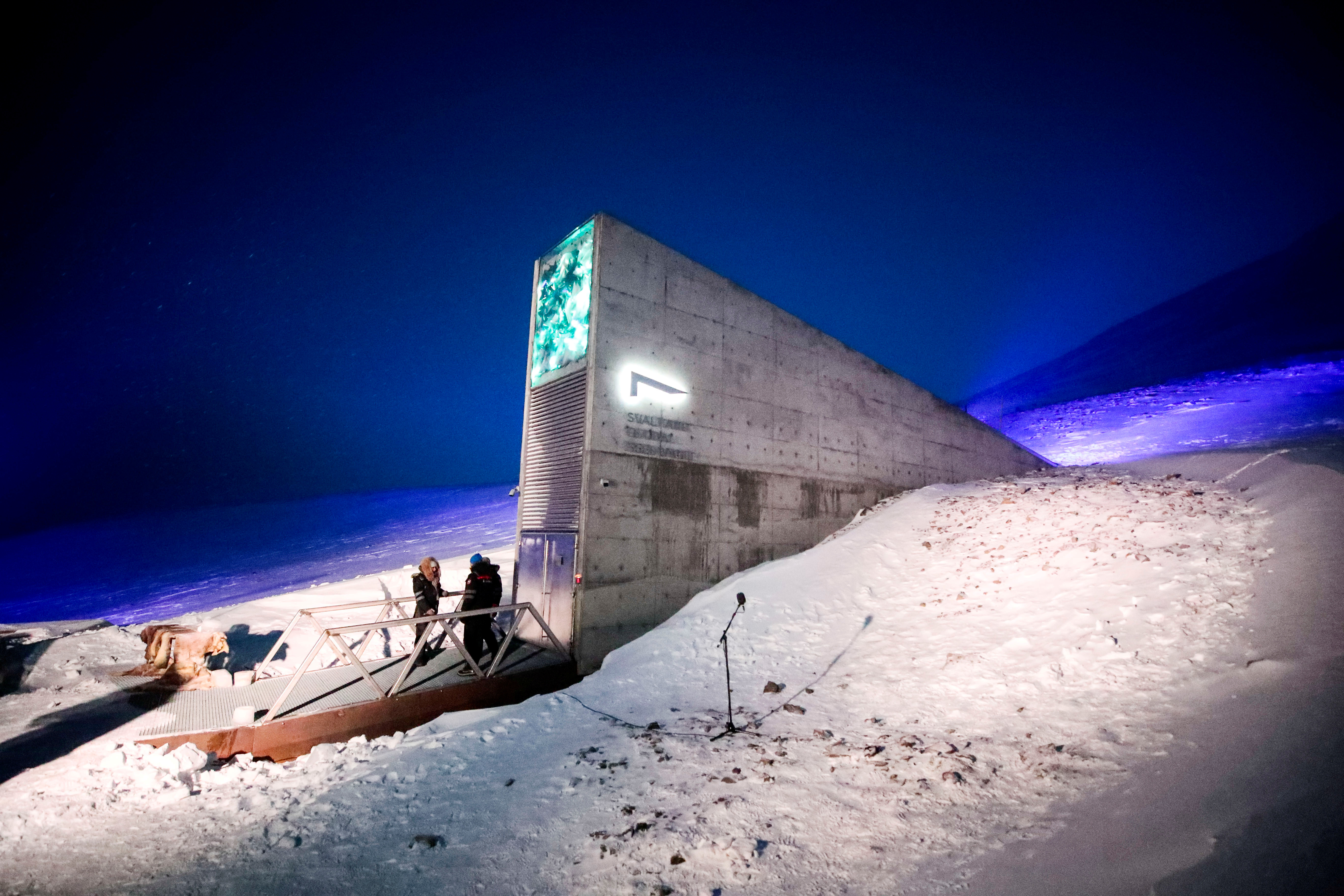Svalbard’s doomsday vault gets record batch of global crop seeds
OSLO, Feb 27 (Reuters) - A frozen Arctic vault built to preserve global agricultural crops from extinction received seeds on Tuesday from the largest number of new contributors yet, a custodian of the remote facility said.
The Svalbard Global Seed Vault, set in permafrost caves on an island halfway between mainland Europe and the North Pole, was launched in 2008 as the ultimate backup for the world's gene banks to protect plants from war, disease and climate change.
The vault has received samples from across the world, and played an essential role between 2015 and 2019 in rebuilding seed collections damaged during the war in Syria.
On Tuesday, depositors carried crates of seeds into the vault's entrance, a long narrow structure which juts out of the snow-covered hillside.
Twenty-three seed banks took part, nine of them for the first time, the largest number of newcomers introduced at one single occasion, according to Crop Trust, a non-profit that operates the facility along with Norwegian authorities.
[1/2]Representatives from many countries and universities arrive in the Svalbard's global seed vault with new seeds, in Longyearbyen, Norway February 25, 2020. NTB Scanpix/Lise Aserud via REUTERS/ File photo Purchase Licensing Rights
First-time depositors included seed banks in Bosnia and Herzegovina, Cameroon, Indonesia, Kazakhstan, Kenya, Madagascar, Nigeria and Zambia, Crop Trust said.
The crates arriving on Tuesday contained crops such as beans, barley, cowpea, maize, rice, millet and sorghum, it added.
"Preserving genetic diversity in this Arctic fastness ensures the adaptability and resilience in our crops, guaranteeing food security for generations to come," Crop Trust Executive Director Stefan Schmitz said.
Many of Tuesday's deposits were the result of a global 10-year biodiversity project known as BOLD, which is designed to boost global food and nutrition security, the trust added.
With the latest deposit, 111 seed banks in 77 countries have a backup of their plants in Svalbard, said Norway's ministry of agriculture and food.
The chambers, which are only opened three times a year to limit the seeds' exposure to the outside world, boast temperatures of around -18 degrees Celsius (-0.4 degrees Fahrenheit).
Sign up here.
Reporting by Terje Solsvik; Editing by Crystal Chesters
Our Standards: The Thomson Reuters Trust Principles.

